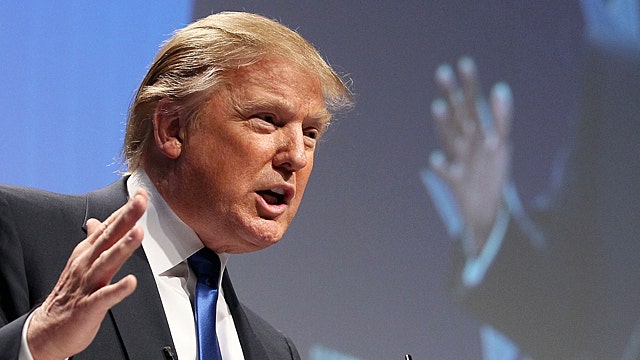Bernanke Worried About ‘Fiscal Cliff’
Federal Reserve Chairman Ben Bernanke took to the podium to answer reporters' questions about the Federal Open Market Committee's latest announcement. Here are the big takeaways.
1. Federal Reserve Chairman Ben Bernanke is really, really worried about the "fiscal cliff." Asked if he felt the risks to the economy over the expiration of the Bush-era tax cuts and automatic budget cuts set to take effect Jan. 1 were overblown, Bernanke had a clear answer: No.
"I don't buy the idea that a short-term descent off the fiscal cliff would not be costly," Bernanke said.
Pointing to declining consumer and business confidence and volatility in the financial markets, Bernanke made it clear that while he thinks Congress and President Barack Obama will reach a deal, if they don't, it could mean a serious jolt to the fragile economy that the Fed could not repair on its own.
"We cannot offset the full impact of the fiscal cliff," he said.
2. There's no new stimulus here. While the guidelines for when the Fed will raise rates have been revamped and the end of Operation Twist will be offset by new Treasury buying in 2013, Bernanke stressed that the total amount of money the Fed is pumping into the economy hasn't changed much.
"I don't think we have substantially added to accommodation," Bernanke said.
3. QE3 will eventually mean much lower mortgage rates. In September, the Fed announced it would purchase $40 billion worth of mortgage-backed securities from Fannie Mae and Freddie Mac. The problem is, while rates on those MBS have fallen, that hasn't translated to a comparable drop in the mortgage rates seen by borrowers.
Bernanke thinks that will eventually change.
"While we don't expect 100% pass-through of MBS yields to mortgage rates, our analysis suggests that, over time, the great majority of the decline in MBS yields does get passed through," he says.
So what's holding it up? Rising guarantee fees and an inability of the battered mortgage industry to keep up with loan demand are two big factors, he said.
4. There's more transparency in the way the Fed will offer guidance on interest rates. The change to the forward guidance on interest rates is pretty big news. Wednesday it was announced that the federal funds rate won't move until the unemployment rate is at or below 6.5%, or long-term inflation expectations rise above 2.5%.
By revealing the economic conditions the Fed will be looking for before a rate increase is considered, if economic news strengthens or weakens, the "public can adjust expectations on when the federal funds rate will increase without changing the date in a way that is nontransparent," Bernanke said.
Using only the calendar-based guidance, for instance, saying a rate increase would not come until mid-2015, "it was a nontransparent process. No one understood why we made changes because no one understood how policy was linked to underlying data," Bernanke said.
But there's another benefit. The Fed believes that markets will automatically adjust interest rates, to some degree, based on expectations as a result of the understanding of the economic conditions preceding a rate increase.
Markets "will act as automatic stabilizer. If economic conditions worsen and markets think a rate increase is further out, rates will go down. This will act as stabilizer against adverse shocks," said Bernanke.
5. Increased clarity on rates will help bondholders. Investors of all stripes have been forced into riskier assets as a result of the low interest rate policies of the Federal Reserve. One problem with that for savers or investors on a fixed income is the increased interest rate risk inherent in bonds. When the Fed does raise interest rates, yields will rise while prices will fall, increasing the possibility of losing principal.
While the new interest rate guidance was not formulated with bondholders in mind, the increased clarity and insight into when rates might go up will help bondholders adjust their strategies and possibly mitigate interest rate risk.
"It is a fact that clarity will help markets predict how bond yields will behave as the economy strengthens and the exit comes closer. We expect longer-term bond yields to rise and the more information we can provide, the better information they will have on the likely path of bonds," Bernanke said.
6. The Fed is not accommodating federal borrowing, it is accommodating the economy. One criticism of the central bank's asset purchase plans has been that it is basically printing money to subsidize the federal debt. Not true, says the Federal Reserve chairman.
"These are the facts: We're buying Treasuries and mortgage-backed securities, half-and-half roughly. Less than the Treasury is issuing, moreover the share of Treasuries that the Fed owns, is not that different from what we owned before the crisis," Bernanke said.
"It's not such a radical shift and though we have been increasing the balance sheet for some time, we have been clear that this is a temporary measure to provide accommodation to the economy. We will reduce holdings either by letting the assets run off or selling. It is strictly temporary and would be a different matter if we were buying and holding indefinitely. That would be monetization," he said.




















